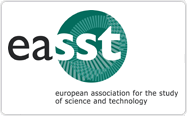Technologies of Ecological Mediation
Ethical Conflicts over Environment and Imagined Future in Bali
DOI:
https://doi.org/10.23987/sts.120760Abstract
Different world views and ontologies require different technologies to deal with environmental issues. Land reclamation plans in Bali’s south, meant to open up new space for tourist development, triggered strong but varied responses in the Balinese population, from rejection to enthusiasm. All actors claim to aim towards a prosperous Bali, and at the protection of a degrading environment, but notions of prosperity and protections and the means and technologies used differ tremendously which leads to ethical conflicts. This paper identifies three actor groups based on the technologies they use to mediate relationships in the ecologies they inhabit. Drawing on modern interventionist technology and development and implied universal moralities, scientists aim to manage environment and normalize ecologies for economic benefits or environmental protection. In contrast, religious Balinese actors, for whom environments are dwelling places of spirits and gods, make use of their bodies as means of mediation to communicate with the non-human and restore the balance between environment, humans and god. A third kind of technology used in the reclamation case is a broad mix of media, from traditional theatre to new social media, that are meant to mediate between locally rooted ontologies and global activism, communicate resistance to a broad public, and thus save a (sacred) environment and Bali. In the Bali case, technologies appear ambivalent as they contain contradictory forces and their relationship with the environment is highly complex, which makes consequences quite unpredictable and ethics quite diverse.
Downloads
Published
Versions
- 2024-05-15 (2)
- 2024-04-03 (1)
Issue
Section
License
Copyright (c) 2024 Birgit Bräuchler

This work is licensed under a Creative Commons Attribution 4.0 International License.





